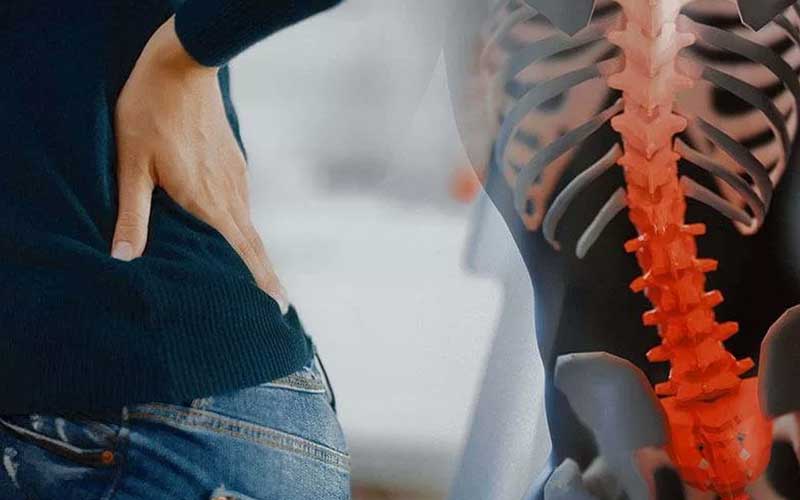What Is the Difference Between a Herniated Disc and Sciatica? | A Comprehensive Guide to Symptoms, Causes, and Treatments

What Is the Difference Between a Herniated Disc and Sciatica? | A Comprehensive Guide to Symptoms, Causes, and Treatments
Introduction
Lower back pain is one of the most common health issues affecting people around the world. Two frequently heard terms in this context are “herniated disc” and “sciatica.” But what is the actual difference between a herniated disc and sciatica? Are they the same condition or entirely separate issues? In this comprehensive article, we will explore both conditions, their symptoms, causes, diagnostic methods, and treatment options — with expert insights from Dr. Mojtaba Mostafazadeh, a spinal specialist at Sepanta Center.
What Is a Herniated Disc?
Intervertebral discs act as cushions between the vertebrae of the spine, allowing flexibility and absorbing shocks. When one of these discs becomes displaced or ruptured, it’s referred to as a herniated disc, also known as a slipped disc or disc prolapse.
Common Symptoms of a Herniated Disc:
-
Localized pain in the lower back
-
Pain radiating to the buttocks or upper legs
-
Numbness or tingling in the legs
-
Muscle weakness in the legs
According to Dr. Mojtaba Mostafazadeh, one of the leading spine specialists at Sepanta Center, one of the major causes of disc herniation is improper lifting techniques and weak core muscles.
What Is Sciatica?
Sciatica is not a disease in itself, but a symptom resulting from compression or irritation of the sciatic nerve, which runs from the lower back down to the feet.
Common Symptoms of Sciatica:
-
Sharp, shooting pain from the buttocks to the back of the leg
-
Numbness or tingling in the lower leg or foot
-
Worsening pain when sitting or sneezing
-
In severe cases, loss of bladder or bowel control
Based on clinical experience at Sepanta Center, Dr. Mostafazadeh notes that many patients mistakenly believe they have a herniated disc when their pain actually originates from sciatic nerve inflammation.
What’s the Difference Between a Herniated Disc and Sciatica?
| Comparison | Herniated Disc | Sciatica |
|---|---|---|
| Root Cause | Damage to intervertebral discs | Pressure or inflammation of the sciatic nerve |
| Pain Location | Typically in the lower back and upper legs | From the lower back to the feet |
| Pain Type | Local or radiating pain | Burning or shooting pain along the nerve path |
| Diagnosis | MRI or CT scan | Neurological exam, MRI, EMG |
| Treatment | Medication, physical therapy, surgery | Anti-inflammatories, physical therapy, nerve blocks |
Can a Herniated Disc Cause Sciatica?
Yes. One of the most common causes of sciatica is a herniated disc pressing on the sciatic nerve roots. At Sepanta Center, such conditions are frequently diagnosed and treated under the expert supervision of Dr. Mojtaba Mostafazadeh.
Treatment Options for Herniated Disc and Sciatica
Non-Surgical Treatments:
-
Limited rest (not complete bed rest)
-
Anti-inflammatory medications and muscle relaxants
-
Specialized physical therapy
-
Epidural steroid injections
Surgical Treatments:
If non-surgical treatments are ineffective or the patient has severe neurological symptoms, surgery may be necessary. At Sepanta Center, minimally invasive surgical techniques are used to reduce complications and recovery time.
Prevention Tips
-
Strengthening core and back muscles
-
Avoiding prolonged sitting
-
Lifting objects with correct posture
-
Maintaining a healthy weight
Conclusion
Although a herniated disc and sciatica are closely related, they are two distinct medical conditions. Understanding the difference between them is crucial for accurate diagnosis and effective treatment. If you’re experiencing persistent back pain, it’s essential to seek professional medical evaluation.
Dr. Mojtaba Mostafazadeh at Sepanta Center, with years of experience in diagnosing and treating spinal disorders, is here to help you regain a pain-free life.
Frequently Asked Questions (FAQs)
Does sciatica always require surgery?
No, most cases of sciatica can be managed with medication and physical therapy.
Can a herniated disc heal on its own?
In mild cases, symptoms may improve with conservative care, but full recovery of the disc to its original state is rare.
How can I tell if I have a herniated disc or sciatica?
Accurate diagnosis requires physical examination and imaging. Visiting a specialized center like Sepanta Center is the best way to identify the underlying issue.
